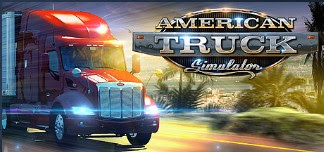Space gaming is hard. The first thing that happens is you sit there and wonder, "What do I do?" I have a universe out there so big I can never explore it all, there are the gears of civilization grinding on around me, and I feel so infinitesimally small that my brain freezes up, and I have no idea what I should be doing.
Some games give you frameworks to operate within, such as any of the Cepheus Engine games. When in doubt, you could always be a space truck driver and haul cargo. There are random tables and frameworks in here that get you started, and they sort of define the universe's "working model" for you.
However, this is somewhat akin to describing Earth as a world "having a lot of truck drivers, cargo ships, and passenger airliners." Nothing about the people, places, countries, religions, economics, conflicts, resources, society, or anything else. Earth is a place "where there is cargo."
The framework can put blinders on you, and focus the game too much in this area, and not in other places where you may want the focus to shift instead.
This is my "space game model," and it is heavily influenced by this sort of "2d6 gaming in space." When I start to play games like this, I take out a mortgage, buy a ship, go deep in debt, and take random cargo runs and have random encounters everywhere on the map. It is a fun game model and system, but it is not a science fiction game. It is sort of like playing a "truck driver simulator."
In my Car Wars-style "Road War" game, I had a nice setup. My PC was a delivery van driver in a desert outpost fortress town. They took jobs in town, and then shifted focus to out-of-town jobs. The desert town had a few unique story elements. This was a stop on a major trading route. The city relied on remote outposts with water pumps and solar panels. To the south is a fortified agricultural zone. Road bandits and gangs preyed on lone travelers. So:
- The town needs water from remote outposts.
- The remote outposts need supplies and solar panels.
- Raider gangs terrorize the desert.
- A significant trade route runs through town, with a truck stop.
- Food needs to be transported from the fortified farms to the town.
I have story hooks, and my first missions were cargo runs to the water pumping outposts, delivering solar panel replacements, and hauling supplies to them. I did not need random cargo tables to tell me this; the story of my setting did. The setting would have been less enjoyable with the cargo tables and generation systems, and since I didn't have them, I fell back on my setting's story and drew inspiration from that, which ultimately gave me a better game.
That setup still needs characters and specific stories, but it's far better than a book filled with random tables and trading frameworks. There is a flow of goods, those who need them, and those who want to take them. My PC works for a delivery service. If there are no stories and nothing is going on, I still have a job. This should not happen; there needs to be other stories happening to drive that 'personal involvement,' but I can't fall through the cracks and sit there with nothing to do.
I laid out a simple setting, five facts about it, and I can use that as my story canvas. This is my "framework," and it does not need a lot of work. It just needs a little fun designed in, and a character in a position to interact with the pieces.
With tables, I would not have felt the need to create a story that supports the need to run cargo across dangerous terrain. In a science fiction game, this is the same exact thing. I don't need the tables, I need a setting and a story first. That will give me much more mileage than tables that are nice to have, but they don't create plots and stories. Not having the charts made the stories and setting stronger.
This is a simple story structure: create a regular activity that requires the characters to face unexpected danger (or uncertain situations) periodically. In a space game, I could make a far-away system with a lost civilization, and make my characters the survey team. Alternatively, they could serve as the support team for the survey. Or the cargo haulers.
We have a mystery with that lost civilization, and we have a regular activity going back and forth to it. There are stories here! Add some enemy space aliens and space pirates, and you have even more happening. There are no tables here yet, but if there were, they would be focused on this story and not general-purpose random cargo tables. While random tables are good to have, they don't tell a story or drive campaign interest.
If you find yourself lost in space, write a few stories to help you find your way out. Ask yourself, who is here, and what is happening? Ask yourself about the current situation. Imagine who lives there, and what troubles they face. Then let those plots drive PC action.



No comments:
Post a Comment